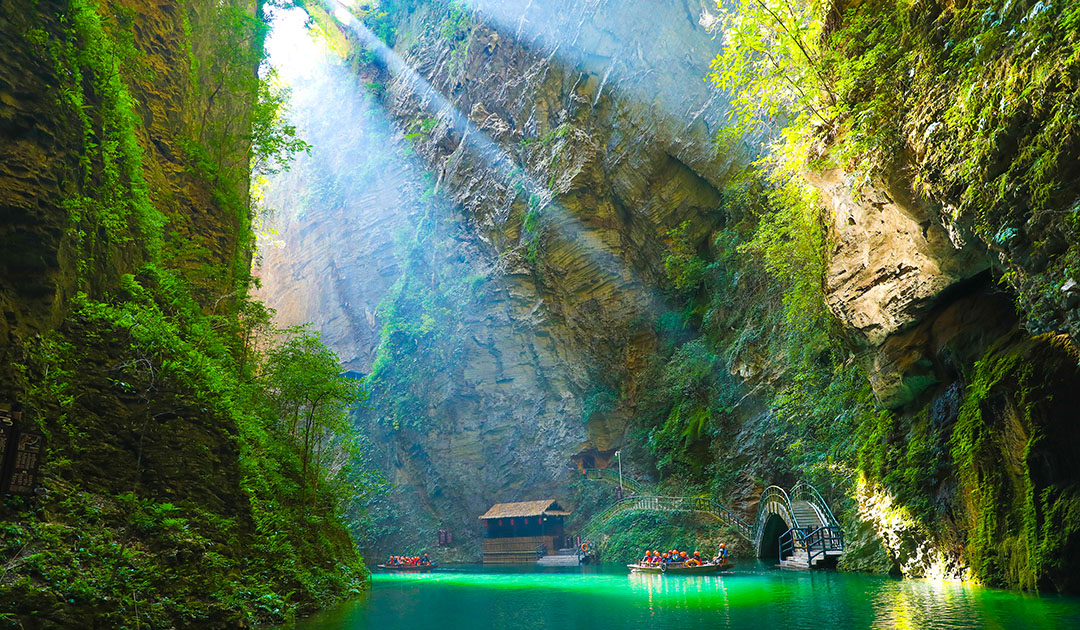From the outset, Pingshan Canyon in Hubei captures the imagination with its crystal-clear waters and soaring cliff walls, offering travellers a serene retreat in the heart of subtropical China. Tucked within Hefeng County’s lush mountain terrain in Enshi Prefecture, this hidden gem has swiftly risen in popularity, drawing visitors seeking immersive natural beauty amid thick bamboo forests and precipitous stone corridors.
Gliding along whisper‑quiet boats, visitors feel momentarily suspended in mid‑air as emerald‑green water mirrors towering canyon walls. This immersive boat experience, framed by near‑vertical cliffs, provides an intimate perspective on the region’s dramatic geology, enhanced by narrow waterways like “A Thread of Sky,” where sunlight filters through gaps to create dreamlike reflections.
Beyond its visual splendour, the canyon reveals layers of cultural significance. The area houses remnants of ancient Tusi governance and over 200 natural caves and sinkholes – part of an underground river system that has carved unique karst formations over millennia . Visitors often conclude their journey with a climb along cliff‑side plank roads or cable‑car ascents, linking them physically and spiritually to this spectacular landscape.
The visitor experience is thoughtfully curated: a single‑day tour, including boat rides, shuttle‑bus access, and cliff walks, offers a full immersion in nature and heritage. Recommended highlights include early‑day boat excursions to beat crowds, cable‑car rides above the canyon, and encounters with local Tujia‑Miao cultural expressions .
This rise in tourism offers broader lessons for global travel. Pingshan Canyon exemplifies how lesser‑known destinations can flourish through sustainable management, blending environmental integrity with infrastructure improvements. As travellers increasingly seek authenticity and tranquillity, regions like Hubei may become blueprints for the future of adventure tourism, where natural grandeur meets responsible development.
In essence, Pingshan Canyon marks a new chapter in Chinese tourism: a captivating, contemplative escape that honours both geological marvels and cultural legacy, while charting a path toward sustainable, experience‑driven travel.


